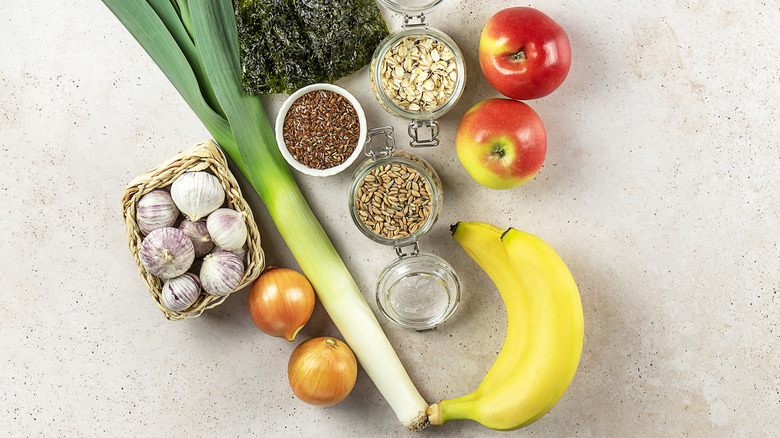Can Dietary Fiber Make Your IBD Symptoms Worse?
Inflammatory bowel disease (IBD) involves inflammation in your digestive tract, and IBD sufferers complain of symptoms such as diarrhea, fatigue, and abdominal pain (via Mayo Clinic). According to the Crohn's and Colitis Foundation, 1.6 million Americans have IBD.
A recent 2022 study in Gastroenterology sought to understand why some people with IBD have a hard time digesting certain types of fiber. Researchers took biopsies from people who suffer from IBD and found that some people didn't have enough fiber-fermenting microbes in their gut. Because the fiber remained in the gut, the body responded with inflammation. The study's results can help people with IBD identify which fibers create this inflammation so they can get the necessary fiber in their diet without flaring up their symptoms.
A news release about the study said that fiber from artichokes, chicory, garlic, asparagus, and bananas can remain unfermented in the gut without certain microbes (via EurekAlert). If enough fiber-fermenting microbes are present, this fiber helps with digestion and combats inflammation. Without them, some IBD sufferers can aggravate their condition.
Researchers are developing a test for gut microbes
According to the news release, the researchers involved with the 2022 study published in Gastroenterology are crafting a way to test gut microbes to determine which types of fiber induce inflammation for each person with IBD. "By creating this stool test, we are hoping to be able to tell you how to adjust your diet to prevent flares or further worsening," said Eytan Wine, a professor of Medicine and Dentistry at the University of Alberta (via EurekAlert). "It's a dynamic situation so it's possible that a certain food you should avoid now, in a few months you'll be okay to eat that again."
According to the University of California San Francisco, fiber is an important part of your diet that helps reduce your risk of heart disease, diabetes, colon cancer, and high cholesterol. The U.S. Department of Agriculture recommends 14 grams of fiber for every 1,000 calories you consume each day. That means about 28 grams a day if you eat a 2,000-calorie diet.


